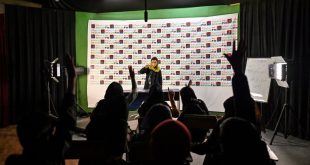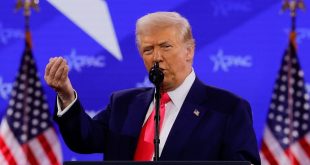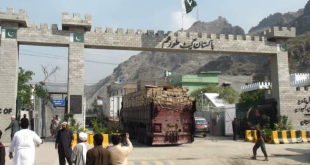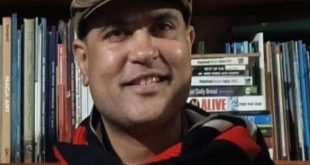AT News Report-KABUL: Afghanistan’s media professionals, who continue to work against immense challenges, are to be commended for their courage and determination, the UN Secretary-General’s Special Representative for Afghanistan said at a Kabul event marking World Press Freedom Day.
“Freedom of speech, particularly the freedom of press, is what I consider to be one of the most important features in a mature, open society,” said Tadamichi Yamamoto, who joined Afghan officials, including Chief Executive Abdullah Abdullah, in commending the work of media professionals across the country.
“The many victories of media in Afghanistan have been hard won,” said the UN envoy, who is also head of the UN Assistance Mission in Afghanistan (UNAMA). “In the world rankings of press openness and freedom, Afghanistan, a nation embroiled in conflict, has managed to hold its place in world press freedom rankings even as fighting takes a heavy toll on journalists.”
The UN envoy said Afghanistan’s media professionals, women and men, are to be commended and celebrated for their courage and determination. “Be assured that the UN and international community are immensely grateful for your work,” he said.
Mr Yamamoto went on to note that progress has been made in Afghanistan even as there has been an erosion of media freedoms in some traditional democracies. “In the region,” he said, “Afghanistan stands out as a leader in openness and creativity.”
The Afghan public now has access to an estimated 70 TV stations and 175 radio stations, as well as a vibrant and growing social media scene. However, the UN official noted, the challenges of working in a conflict zone are “immense,” as reporters put themselves at great risk.
“Journalists under attack in conflict zones can only perform effectively if they have adequate access and adequate protection,” he stressed. “This need inspired the UN to formulate its ‘Plan of Action: the Safety of Journalists and the Issue of Impunity’ in 2012 to uphold the fundamental right of freedom of expression by working toward the creation of a free and safe environment for journalists.”
The UN envoy went on to note that the opponents of democracy, gender equality and free expression are ever-present, and so a reporter or writer must stand guard and remain vigilant.
“The past solar year was one of the most violent years for journalists and media staff in the last two decades,” he said, citing one Afghan media organization that described the increase in violence against journalists as “staggering.”
Most attacks against journalists in Afghanistan occur on the front lines of combat, but assaults have also taken place in Kabul and in other major cities in the country.
“It is appropriate to acknowledge each and every case that hampers the work and livelihood of Afghanistan’s brave press corps,” said Mr Yamamoto. “It is also right to expect political representatives to defend the victims of intimidation and violence, and implement laws that have been put in place for this purpose.”
A free press perpetuates freedoms in other spheres of life, said the SRSG. “This should give us all hope and confidence,” he said. “Although an increase of female participation in the public workforce remains slow, a recent survey suggests that the number of women working in the media has actually increased.”
Thanks to international support and national determination, he said, the Afghan press corps now is setting a new standard for other professions.
In closing, the UN envoy said that without freedom of the press, an informed, active and engaged citizenry is impossible. “With freedom of expression,” he said, “many things become possible: good governance; poverty reduction; access to justice; and a culture of human rights that will benefit all Afghans, both today and tomorrow.”
World Press Freedom Day, marked every year on 3 May, is an occasion to celebrate the fundamental principles of press freedom and pay tribute to journalists who have lost their lives in the exercise of their profession.
 Afghanistan Times
Afghanistan Times




